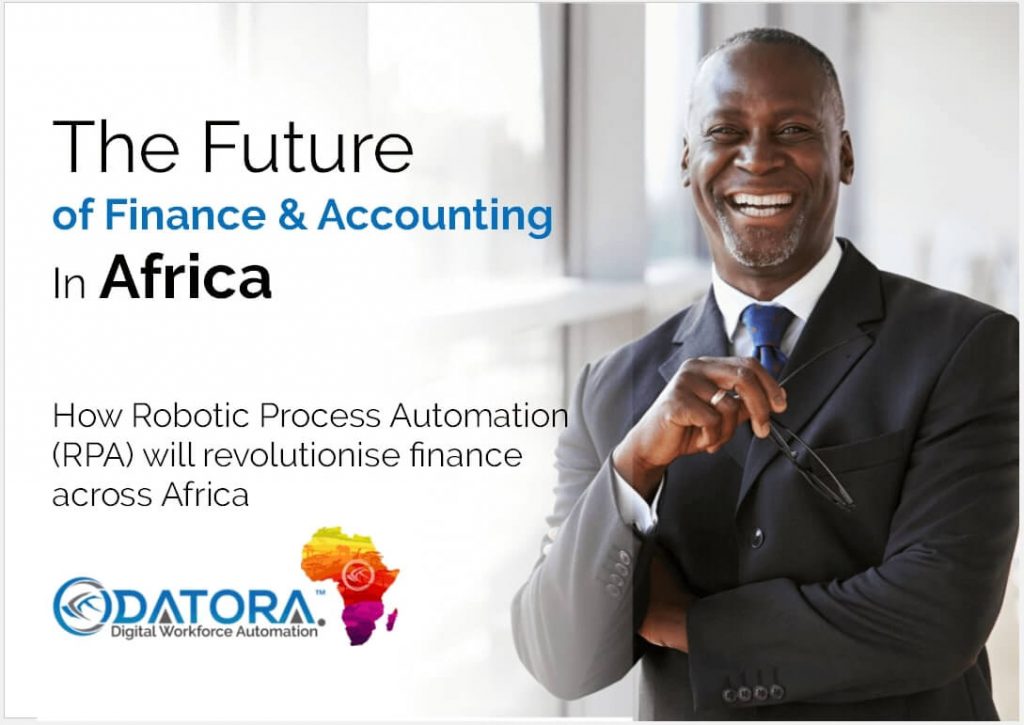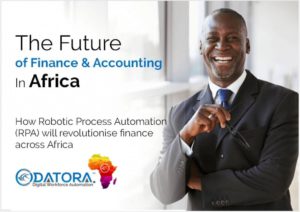Introduction
In a world so focused on innovation the emphasis lies with how you innovate (and in which direction). Innovation, for innovation’s sake, is no longer enough to stay ahead of the curve. If you aren’t careful, it is easy to become lost in the water and end up drowning.
Accounting and the financial sector are like lighthouses in the midst of this ever-changing ocean, while they may be adapted to fit with the latest updates in technology, it is safe to say that, in some form, they will be around forever. For reasons discussed in this article, these sectors are the juiciest targets for automation.
One of the biggest roadblocks to automation experienced by companies in today’s market are the old, chunky, legacy systems. You know the ones. They were developed in the 70s. They use the programming languages of old. They have not changed much since. This is partly due to either the current lack of COBOL developers, or the fact that they have become the keystone systems within their host companies, and nobody is brave enough to touch them.
RPA is the obvious emergent solution to these legacy systems. By working with the systems instead of trying to change them we are able to implement without the risk of bringing the entire business to its knees.
With the tech industry using more acronyms than the banks, it can be daunting to engage in the conversation. Our years of collective experience in both developing and implementing one of the world’s best automation products gives us the authority to address these issues.
Financial and Accounting
Why are the Financial and Accounting Sectors such as ideal targets for RPA?
Before we unpack that loaded question, we need to understand the effect that the crash of 2008 had on the structure of businesses all over the world. As a result of the crash, the Financial and Accounting sectors started placing a higher value on their own internal financial health. This resulted in stricter risk-policies, and a tightening of the belt with regards to cost control.
With roles having changed, CFOs are moving out of their offices and into a more central position within the business. But how does this all relate to RPA? To find this connection we have to go back even further.
In the early 1990s, the ERP system (Enterprise Resource Planning System) kicked off a transformation in the approach that businesses have to the finance and accounting sectors. These transformations, and the re-engineering of processes that go hand-in-hand with them, have caused an extension in the turn-around time. This, combined with the fact that newer businesses aren’t bogged down with legacy systems (with everything being in the cloud), has caused a market gap. Older businesses have made it their first priority to close this gap, and the easiest and quickest way to do that is through RPA.
But, isn’t RPA another form of Business Process Management?
One of the biggest challenges for older businesses is the lack of digitisation. Many businesses still keep physical copies of their paperwork.
The challenge with scanning these documents into a digital format is that they are scanned as images and are thus not accessible for the modern solutions that these businesses are trying to adopt. The solutions to this problem are cumbersome and expensive with the better OCR technologies riding the wave of low-supply-high-demand.
Business Process Management was a way of improving the time spent on repetitive processes, but the solutions were often semi-automated at best, had extended development times, and the end product tended to be buggy and only work half of the time.
This is where RPA shines.
An RPA bot acts more like a virtual employee than a hardcoded piece of software. Short of having feelings, the bot performs tasks in much the same way as a human would. The robot logs into the same systems and inputs the same type of data. There is no need to give the robot special access as they only need the same access as any other employee with whom you would task with the job.
For tasks where the bot needs to have a more human-like brain, we can use an AI add-on to assist.
Using RPA results in both a faster and a safer process-execution as the tasks that you automate no longer have to be outsourced (or take up the valuable time of your paid employees). By being both faster and safer, RPA has the added benefit of being not only cost-effective but cost-saving as well.
Some of the other added benefits of RPA are improved Risk Management; incredible Accuracy; and increased Client Satisfaction.
“ African businesses are looking at RPA as a strategic key to unlocking efficiency, speed and income by having ERP follow your business, and not having you re-engineer your business process.
So many processes, how do I choose?
RPA: The Booster Rockets
RPA forms part of a bigger family that includes members such as: AI (Artificial Intelligence) and ML (Machine Learning). With integration like this, it is fair to say that RPA will be around for many years to come.
You should be looking at processes that are repetitive and high volume as these will give the best results. The bot is excellent at doing specific tasks over and over again. So, the fewer variations the process has, the better.
Without AI, RPA cannot make complex (Not rule-based) decisions on its own. This means that a process that follows a set of business rules with few exceptions, and no decisions that need someone with an actual brain, has the potential to be an ideal process for RPA.
Another thing to consider is the fact that RPA bots need a digital input, the more structured this input is the easier (and quicker) the bot will be to develop. The stability of the applications that the bot will be interacting with will also have an effect on development time (and quality).
If you would like a list of possible processes ready for automation within the accounting and financial sectors, please view (insert UIPATH web link). Your first consideration should be automating processes that feel like a waste of time but “need to get done”.
Finance Automation for Africa
Better risk and compliance control, greater accuracy, better cycle times and increased throughput;
RPA is defined as, “Implementation of software technology enabling employees to configure computer software known as a robot to interact, capture and interpret existing applications for transaction processing, manipulate data, activate responses and interact with other digital systems;”.
Instead of hard-code automation workflows and APIs (Application Programming Interfaces) into your existing software programs. RPA imitates the actions of a person alongside existing systems. RPA works in the same way as a human employee. It reads, interprets and transfers data from one (or multiple) sources to multiple applications on a computer.
Robots can effortlessly transfer and capture data from an application to application, imitating behaviours such as clicking, typing, copying, and switching between windows.
An added benefit of these robots is the capability to use native and add-on models of Artificial Intelligence & Machine Learning to improve the overall functionality and learn from the experience.
Robotic Process Automation (RPA) can play a crucial role for accountants and finance professionals in transforming your operations.
Because digital employees can supplement and increase your human workforce through the use of RPA robots, it enables people to achieve more in less time, with fewer resources.
Accounting firms and service providers now have the ability to move away from the traditional paradigm of full-time equivalent (FTE) revenue models –where revenue is measured by individual, time-based efficiency– to outcome-based revenue models that now includes the value-added versus traditional transactional metrics.
The robots used in the RPA, process large volumes of recurring tasks much more cost-effectively. The robots can work tirelessly around the clock, and despite initial setup costs and ongoing maintenance costs, the ROI (return on investment) with RPA is much higher.
Though ROI may not be the primary driving factor in your finance and accounting department, the robots can work tirelessly around the clock, and despite initial setup costs and ongoing maintenance costs, the ROI with RPA is much higher.
Better risk and compliance control, greater accuracy, better cycle times and increased throughput; these are key-value drivers for finance managers. Robots free up the costly finance resources to work on higher-value tasks and concentrate on outcomes that not only improve employee engagement but also boost productivity and customer experience.
Uses of RPA in Finance and Accounting
Are the Accounting and Financial sectors being replaced by robots?
RPA brings efficient yet intuitive automation tools and real-time business knowledge into the financial organisation’s own hands. Here we have selected a brief list of the processes that are highly suited to RPA in finance and accounting, giving you a starting point for when you look at implementing RPA within your business.
Procure-to-Pay
- Invoice receipt and classification
- Invoice data extraction
- Invoice data entry and interface
- Purchase order entry and delivery
- Vendor verification and setup
- Vendor master-data management
- Vendor queries/helpdesk
- Two and three-way purchase
- order/invoice/receipt matching
- Vendor statement reconciliation
- Payment processing
Accounts Receivable
- Sales order entry
- Customer data set up
- Customer data management
- Billing/invoicing data extraction and capturing
- Collection activities
- Credit risk management
- Dispute verification and resolution
- Chargeback management
General accounting
- General ledger and sub-ledger reconciliations
- Bank reconciliations
- Inter-company reconciliations
- Manual journal entries
- Reclassification journal entries
- Fixed asset accounting
- Inter-company settlements
- Financial close activities
Tax and compliance
- Data aggregation for tax liability
- Convert data to tax basis
- Complete tax return workbooks
- Prepare tax returns
- File tax returns and payments
- Tax accounting entries
Datora: Bringings robots to Africa
UiPath has spent over a decade devoting all its energy into not only becoming the fastest-growing enterprise software company in history but building what we regard as the world’s leading RPA platform.
Founded in 2011 and having started our UiPath journey in 2017 , Datora has had the unique privilege of not only growing and evolving as UiPath, in how we serve our clients. But UiPath enables Datora to bring RPA, and game-changing efficiency, scalability and accuracy of Intelligent Automation to business across Africa. Allowing business in African to grow at speeds never experienced before and giving us the edge to compete on the global market.
This is our Vision: RPA – For Africa. To bring, drive and grow RPA and Cognitive, Intelligent automation across the African continent, and not only work with the business implementing RPA but the people that use it.
From our head office in South Africa, supporting our offices in Africa and Europe and having close to a decade of knowledge serving the Banking, Finance, Insurance, Legal, BPO, Credit recovery, Call centres, Healthcare, and Logistics industries. Our experienced RPA and UiPath consultants and developers leverage the latest and best technologies, as well as our innovative methodologies to advise, guide and execute the implementation of UiPath RPA.
We supply services to a variety of industries, with our primary focus in banking, finance, insurance, legal, BPO, credit recovery, call centres, healthcare, and logistics. We aim to provide specialised UiPath RPA Development and implementation expertise and individualised solutions.
Financial planning, analysis and reporting
- Data aggregation for reports
- Report preparation
- (including the below)
- Trial balance and balance sheet
- Profit and loss
- Cashflow
- Variance analysis
- Management reports
- Statutory/regulatory reports




